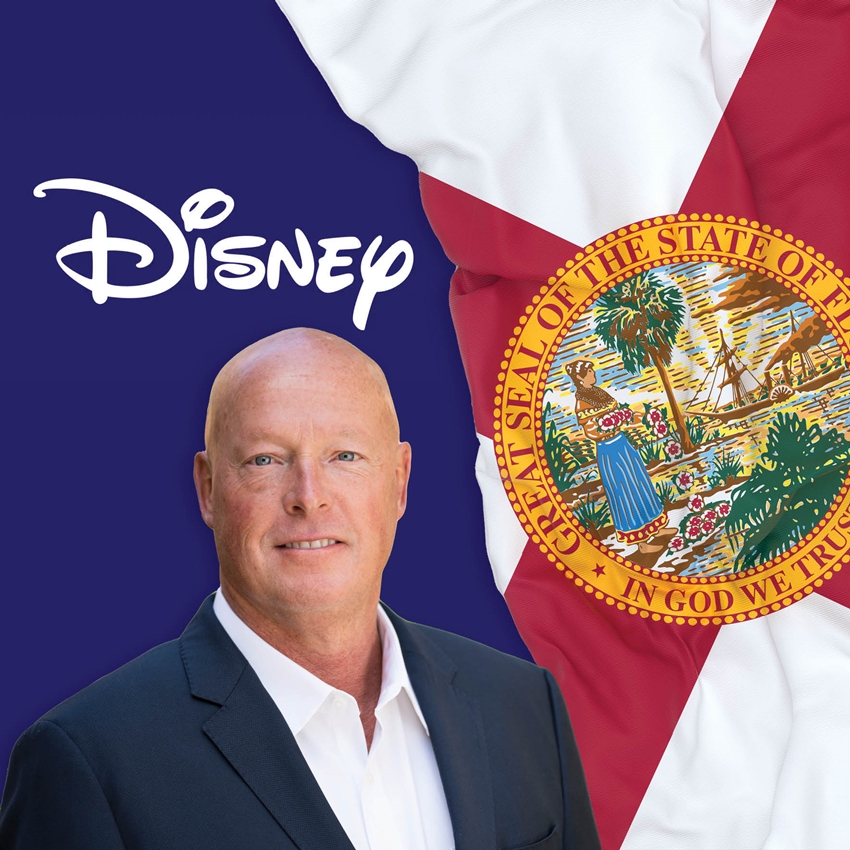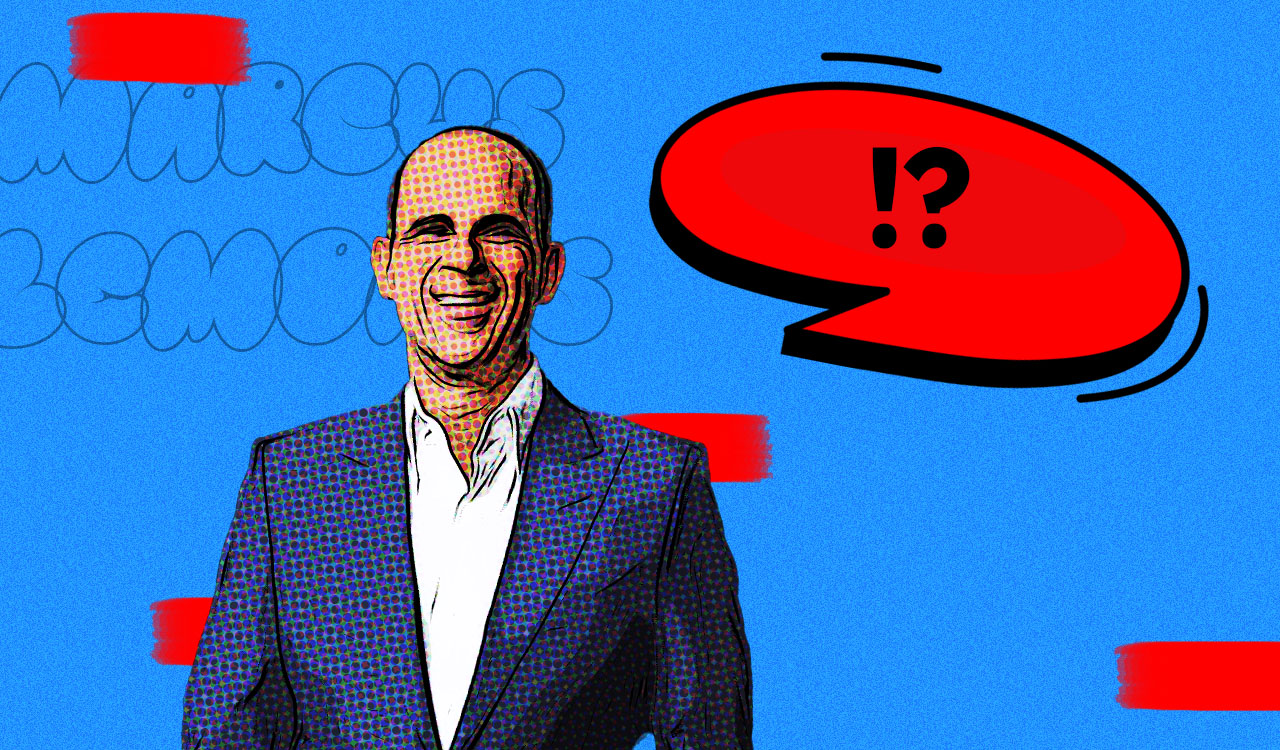A recent Wall Street Journal article quoted Bill George, a senior fellow at Harvard Business School, saying, “The No. 1 concern CEOs have is ‘When should I speak out on public issues?’” related to the faceoff between Disney CEO Bob Chapek and Florida Governor Ron DeSantis. George concluded it was inevitable that CEOs and corporations would be forced to take a political stand and suggested that was a good thing.
But is it? In today’s politically contentious environment getting on one side of a political debate will probably alienate at least half of a company’s customers and employees. Yes, companies may win some new friends, but they also could make enemies, and the worst are powerful political ones.
Winners and Losers
Politics is a game that is designed to make winners and losers. Businesses, by contrast, always need to play to win for their many stakeholders. Therefore, politics and business don’t play well together. Businesses can’t afford to be on the losing side: They must be win/win for all.
The jury is still out regarding Disney’s decision to weigh in on Florida’s Parental Rights in Education Law. While many conservatives felt the entertainment juggernaut had no business weighing in on the matter, the decision was met with widespread support from others who lean more progressive. This much is clear, since Disney’s dust-up with DeSantis, attendance numbers at the Orlando theme park have nearly doubled.
Given that the country is virtually split down the middle between Red and Blue states, popular political views in one state can be diametrically opposed to those in another. As the saying goes, “All politics is local,” and this can cause businesses operating in many states to make fatal mistakes by taking positions that are popular in one community and deeply unpopular in another.
People’s passions run high when it comes to political issues and there is no accounting for how people feel about particular companies or brands. Politics affects how people live their lives. Casting a vote is much more consequential than which brand people choose off a retail shelf, store to shop in, or the amusement park to take your family to. Or is it?
Emotions in Business
When emotions run high on both sides of an issue, one thing is for sure: Bad business decisions are often made under emotional pressure. And when emotions run high, executives are more likely to fall victim to their innate cognitive biases that can cloud their judgment.
For example, confirmation bias makes people more likely to listen to information that confirms one’s existing beliefs and cancels information that doesn’t. Anchoring bias makes one overly influenced by the first piece of information gathered and prone to ignore the rest. Then there is optimism bias which tends to make a person overestimate the likelihood of success and underestimate the probability of failure.
The jury is still out regarding Disney’s decision to weigh in on Florida’s Parental Rights in Education Law. While many conservatives felt the entertainment juggernaut had no business weighing in on the matter, the decision was met with widespread support from others who lean more progressive. This much is clear, since Disney’s dust-up with DeSantis, attendance numbers at the Orlando theme park have nearly doubled. https://www.orlandosentinel.com/business/tourism/os-bz-disney-earnings-call-second-quarter-2022-20220511-lhin5yl7t5edlg6ejhs4bdmiba-story.html Any way you look at the issue, it’s a Faustian choice for any CEO.
Chapek’s intentions were good. He wanted to show support for the LGBTQ community in general and the company’s LGBTQ employees in particular. Disney’s recent changes to its theme parks and streaming services, including a “retheming” of Splash Mountain to disassociate its connection to the inspiration of the ride, the 1946 film “Song of the South,” in which a former slave tells African folktales. Disney’s streaming service also pulled the film from its collection, according to The New York Times.
The Florida challenge was too great for Chapek not to insert himself into the political debate. It’s one that many other companies feel compelled to do as well, especially as corporate environmental, social and governance policies (ESG) are held to accountability under stakeholder pressure.
Let’s take a step back from the politics and look at it strictly from a business point of view. The question is whether businesses should insert themselves in the political process using Disney versus Florida as a case in point.
Fools Rush in Where Angels Fear to Tread
It all started in the middle of 2021 when the Florida Senate Judiciary Committee proposed the Parental Rights in Education Bill. Coming out of committee, it stated, “The state, its political subdivisions, any other governmental entity, or other institution may not infringe upon the fundamental rights of a parent to direct the upbringing, education, health care, and mental health of a minor child.”
It was passed and moved into the Florida House, affirming that parents had ultimate responsibility for their children’s “mental, emotional, or physical well-being.” Additional provisions were added limiting a school’s authority over students and specifically prohibited sexual orientation or gender identity instruction in schools from kindergarten through 3rd grade, typically involving students up to eight or nine years of age.
Governor DeSantis said, “Parents have every right to be informed about services offered to their child at school, and should be protected from schools using classroom instruction to sexualize their kids as young as five years old.”
Those who support the new Florida law post that young children shouldn’t be taught about sex or any other number matters that are deeply personal and have moral implications, although it presents a somewhat untenable situation for LGBTQ+ teachers and the children of LGBQT+ families. The comedian and well-established progressive voice Bill Maher said, “Maybe kids that young shouldn’t be thinking about sex at all,” although tell that to a first grader who is being raised by, say, a lesbian couple. When the teacher asks him to draw pictures of his family, will that teacher be punished when the child sketches out a picture of his “two mommies?”
The bill had widespread support among Florida voters. However, others read the bill differently, seeing it as discriminatory to LGBT individuals, specifically youth. Those in opposition reframed it as the “Don’t Say Gay” bill and the tax-exempt Human Rights Campaign Foundation (HRC) issued a statement opposing it. Some 250 corporations signed on.
At least initially, Chapek stood on the sidelines and did not make a statement for or against the Florida legislation. He stated in a memo to Disney employees: “As we have seen time and again, corporate statements do very little to change outcomes or minds. Instead, they are often weaponized by one side or the other to further divide and inflame. Simply put, they can be counterproductive and undermine more effective ways to achieve change.”
On that, he was absolutely right. But shareholders and company employees protested and he flip-flopped. Chapek later officially came out against the bill, but only after it was signed. He also pledged support to the HRC statement and offered $5 million to support its efforts. Notably, the organization refused to accept those funds claiming Disney didn’t move fast enough or speak loudly enough against the legislation.
A Family-Values Company Dilemma
A careful reading of the bill states age-appropriate limits on classroom instruction about sex and sexual identity until later grades. A company like Disney fully understands age-appropriate programming and storytelling. That’s why its customers, primarily families with children, support the company.
Disney was founded on traditional family values and has persevered with its sunny worldview for the past 10 decades. The dilemma for Chapek was balancing the Disney approach with the significant changes that have occurred in in our social culture. His first and primary responsibility is to Disney customers; they pay everybody’s salaries and deliver returns to investors. The pressure from shareholders and employees put additional pressure on managing the highly-charged situation. Chapek, who has worked for the Disney company for nearly 30 years, understood what the $67.4 billion company and the brand stands for including the loyal customers, 190,000 employees and they many shareholders he is responsible to. In hindsight Chapek might have stayed in his lane and out of politics.
Chapek missread a powerful teachable moment. He could have faced down the company board, stockholders and employees. His political influence could have been directed across his internal constituencies where it really mattered, not in the public sphere.
Paying The Price
Chapek opened Pandora’s Box when he entered the public political forum and has garnered bad will among some stakeholders for his company in the public square. He has also made plenty of political enemies, most especially Governor DeSantis and the duly-elected Florida legislature.
The Florida legislature passed and Governor DeSantis signed a bill that revoked Disney’s “special district status” that allowed the company to operate its resort area without interference or oversight from local authorities. The Disney special district was essentially a self-governing “state within a state.” With Governor DeSantis’s move, now the tax burden has been passed from Disney to local residents, though the practical and financial implications of this have yet to be determined. Three Florida residents living near the special district have filed a federal lawsuit blocking the state from changing the district’s status arguing Florida violated Disney’s First Amendment right to free speech that resulted in the plantiff’s Fourteenth Amendment right to due process of law. That suit has been dismissed by a federal judge.
ESG Conundrum
Corporations have long pulled political strings behind the cover of Super-Pac donations and lobbyists, but now they feel compelled to make a full-frontal assault into the divisive political arena empowered by their ESG responsibilities.
The concept of ESG got started in the investment community during the 1960s with the call to strike disreputable stocks from portfolios, like tobacco products or companies that supported the South African apartheid regime. It gained prominence in 2006 when the United Nation’s presented a report “Who Cares Wins” under the banner of Principles for Responsible Investment (PRI), advocating that implementing ESG principles had a positive financial impact on corporations.
Disney’s ESG-principled move against Florida ‘s Parental Rights in Education bill initially resulted in a loss of over $60 billion in market cap, fluctuating from $265.27 billion on March 1 to $198.81 billion at the end of April to $211.64 billion in mid-May. It also paid a heavy price in the court of public opinion, and if consumers do as they say, it could lose revenue as families vote with their dollars against the company. That being said, recent attendance numbers say otherwise.
We can all agree that corporate ESG policies are a good thing. But they should be applied to to how responsibly corporations manage their own affairs and not extend into broader social governance issues if they have no mandate to go there.
No one disputes the right of Disney or any other corporation to speak its mind on political issues, but whether it’s wise or prudent to do so is the question. Shakespeare offers corporate leaders sage advice: “Discretion is the better part of valor.”




